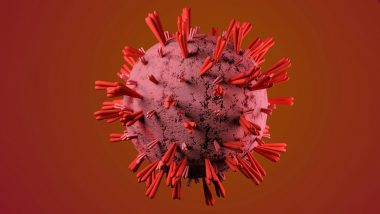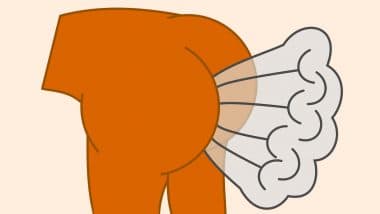Beijing, Feb 3 (AFP) China's top leadership on Monday admitted "shortcomings and difficulties" in its response to the coronavirus outbreak and the government said it "urgently" needed medical supplies to battle the outbreak which has killed more than 360 people.
The comments came as 57 new deaths were confirmed Monday -- the single-biggest daily increase since the virus was detected late last year in the central city of Wuhan, where it is believed to have jumped from animals at a market into humans.
The virus has since spread to more than 20 countries despite many governments imposing unprecedented travel bans on arrivals coming from China.
The World Health Organization has declared the crisis a global health emergency, and the first foreign death from the virus was confirmed in the Philippines on Sunday.
China's elite Politburo Standing Committee called for improvements to the "national emergency management system" following "shortcoming and difficulties exposed in the response to the epidemic," according to the official Xinhua news agency.
"It is necessary to strengthen market supervision, resolutely ban and severely crack down on illegal wildlife markets and trade," it added.
The government also said it "urgently" needed medical equipment and surgical masks, protective suits, and safety goggles as it battles to control the outbreak.
Authorities in provinces that are home to more than 300 million people -- including Guangdong, the country's most populous -- have ordered everyone to wear masks in public in an effort to contain the virus.
But factories capable of producing around 20 million masks a day are only operating at 60-70 percent of capacity, industry department spokesman Tian Yulong said, adding that supply and demand remained in "tight equilibrium" as a result of the Lunar New Year break.
Tian said authorities were taking steps to bring in masks from Europe, Japan and the US, while the foreign ministry said countries including South Korea, Japan, Kazakhstan and Hungary had donated medical supplies.
All but one of the 57 new deaths reported Monday were in Wuhan and the rest of Hubei province, most of which has been under lockdown for almost two weeks.
The national death toll reached 361, exceeding the 349 mainland fatalities from the Severe Acute Respiratory Syndrome (SARS) outbreak of 2002-03. SARS killed a total of 774 people, with most other deaths in Hong Kong.
With 17,200 confirmed infections, the mortality rate for the new coronavirus is around 2.1 percent, compared with 9.6 percent for SARS.
The virus is taking an increasing economic toll, shutting down businesses, curbing international travel and impacting production lines of major global brands.
The Shanghai stock market plunged almost eight percent Monday on the first day of trading since the holiday as investors played catch-up with last week's global retreat.
In Wuhan, which has been transformed from a bustling industrial hub into a near-ghost town, residents have been living in deep fear of catching the virus.
The city's medical facilities have been overwhelmed, with Xinhua reporting that 68 medical teams of 8,300 staff had been sent to Hubei.
And amid mounting pressure, the government has been racing to build two new hospitals to treat the infected.
The first of those, a 1,000-bed facility, was due to open on Monday, just 10 days after construction began, although no opening had been reported by state media by late evening.
With the numbers of infections surging in Wuhan and other areas of Hubei, it was not immediately clear what overall impact the hospitals would have on containing the epidemic.
The industrial city of Wenzhou, 800 kilometres (500 miles) to the east, was placed under a similar lockdown to Wuhan on Sunday and its nine million people ordered to stay indoors.
The emergence of the virus coincided with the Lunar New Year, when hundreds of millions travel across the country for family reunions.
Originally scheduled to end last Friday, the holiday was extended by three days to give authorities more time to deal with the crisis.
But some major cities -- including Shanghai -- extended it again, and many schools and universities have delayed the start of new terms.
Road traffic on Sunday, when hundreds of millions of people would have been expected to return to their cities of work, was down 80 percent, the transport ministry said.
Train journeys were down 74 percent on last year, according to Xinhua, and plane trips a fifth.
Many companies offered staff the option to work from home or defer travel, or simply remained closed.
Many nations have evacuated hundreds of their citizens from China -- with some forcing them into quarantine on their return -- and more airlines are cancelling services to the mainland.
China's foreign ministry Monday criticised the US for being the first to evacuate nationals without providing "substantial assistance" to China.
The US actions had caused "panic", said spokeswoman Hua Chunying.
Mongolia, Russia and Nepal have closed their land borders, while semi-autonomous Hong Kong announced Monday it was closing all but two land crossings.
Also on Monday the Cruise Lines International Association, that represents some of the world's largest operators, said vessels will deny boarding to passengers and crew who have recently travelled to China. (AFP)
(This is an unedited and auto-generated story from Syndicated News feed, LatestLY Staff may not have modified or edited the content body)













 Quickly
Quickly




















